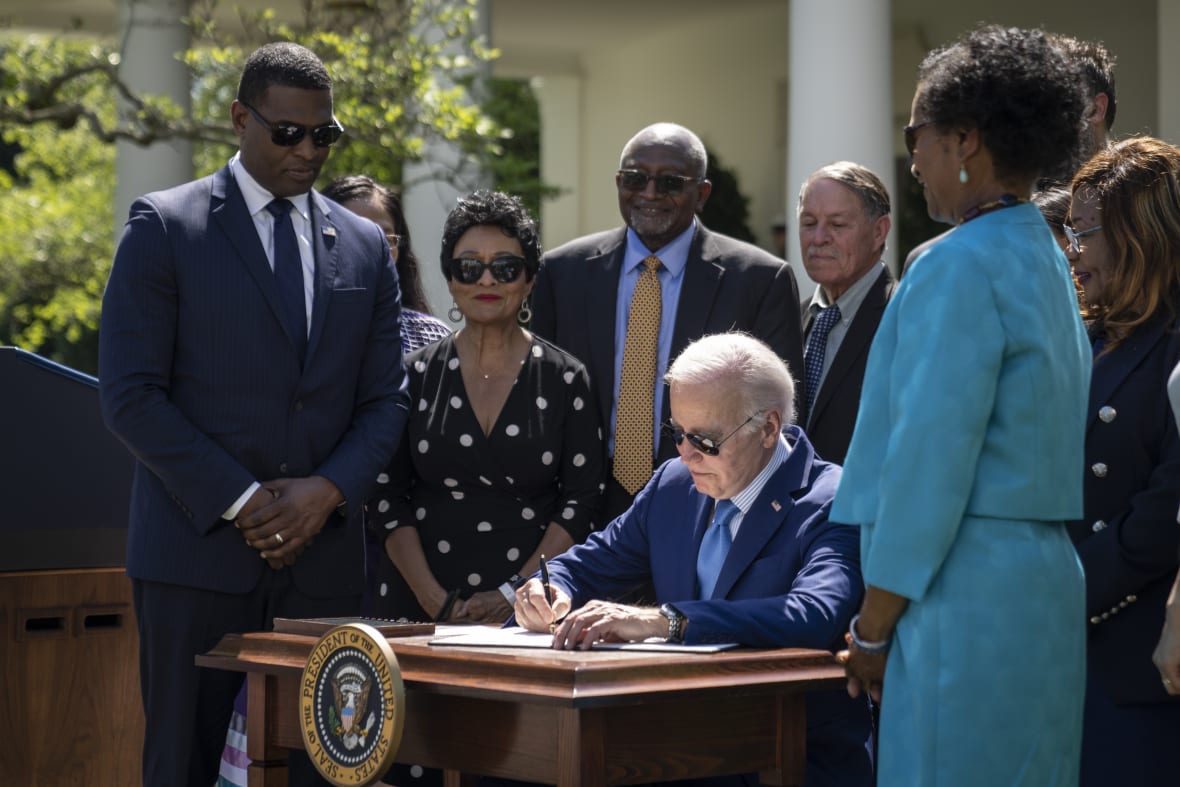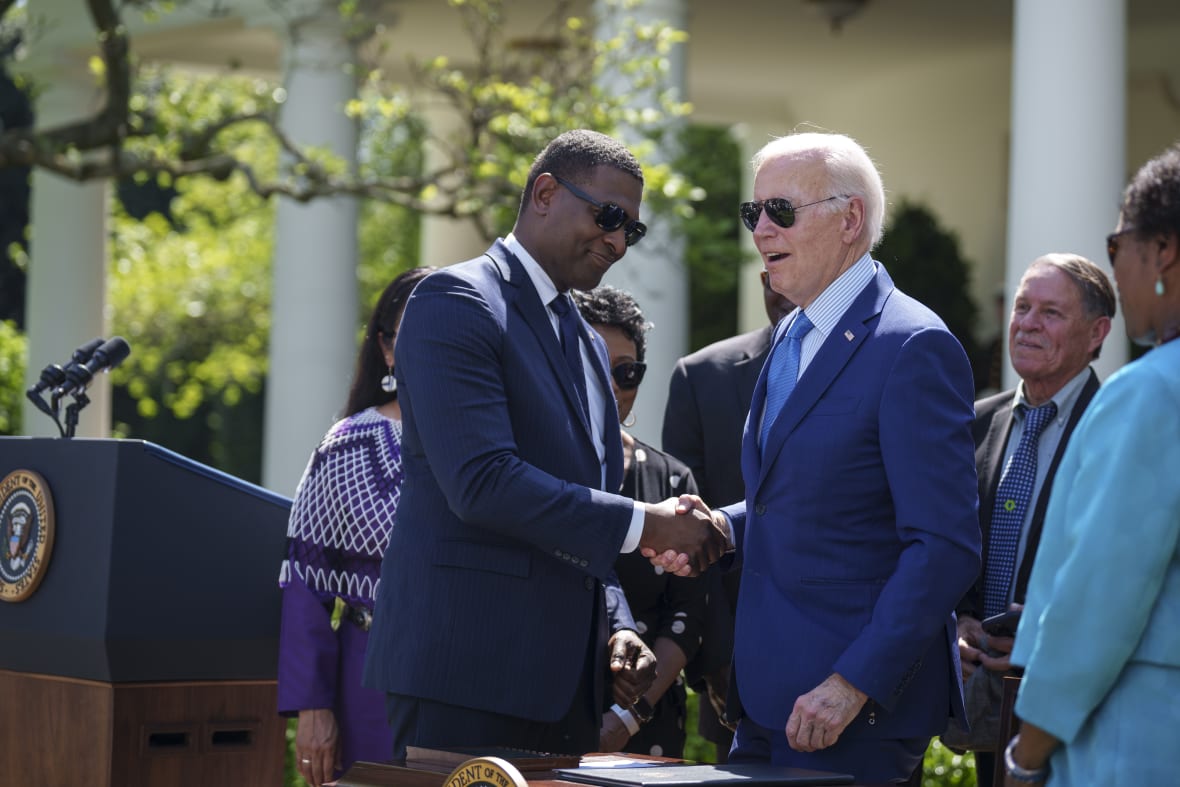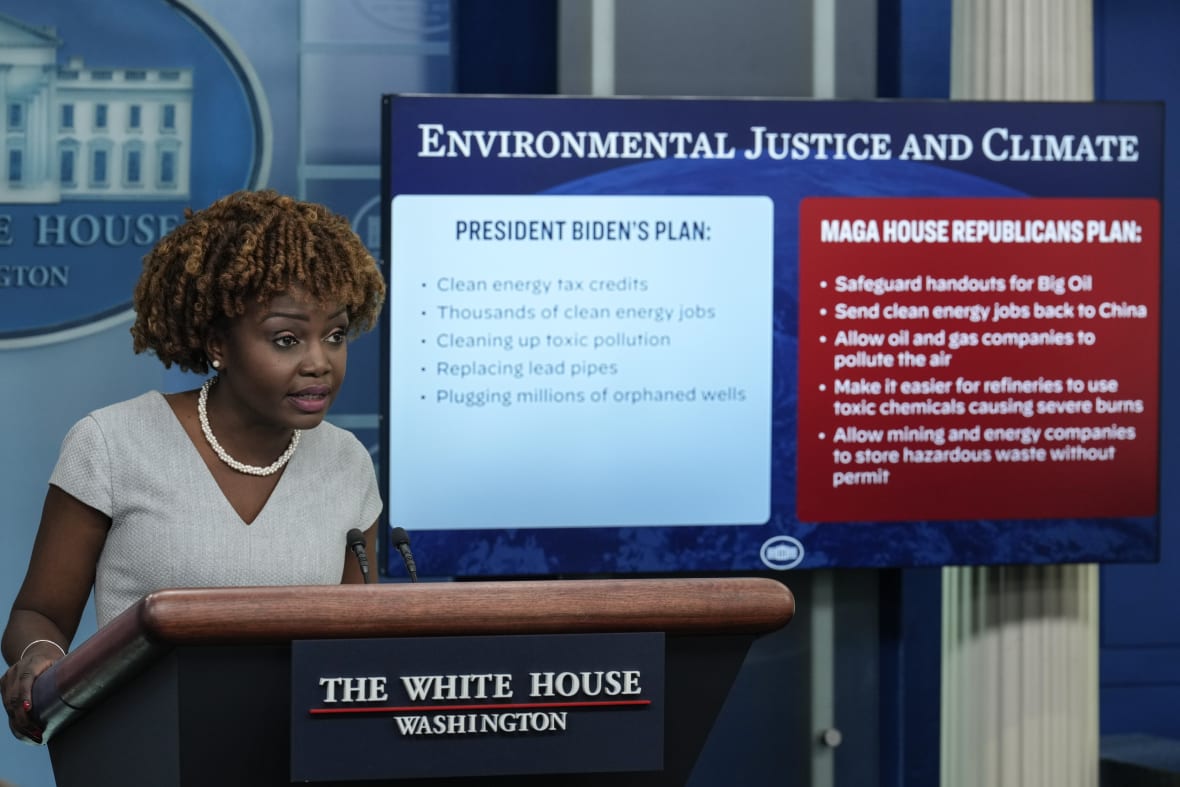Biden signs executive order on environmental justice to combat ‘legacy of racism’
“If we don't understand our history, we're doomed to repeat it,” Environmental Protection Agency Administrator Michael Regan told theGrio.
President Joe Biden on Friday — one day before Earth Day — signed an executive order advancing federal efforts to address historic and current environmental injustice with a particular focus on Black and brown communities.
The executive order to “Revitalize Our Nation’s Commitment to Environmental Justice for All,” among several actions, establishes a new White House Office of Environmental Justice to coordinate the implementation of environmental justice policy across the entire federal government.

Biden’s order calls out racism as a “fundamental driver of environmental injustice,” directing federal agencies to better engage in overburdened communities, including communities of color and low-income communities.
The order also directs agencies to address gaps in science and data to better understand and prevent the health impacts of pollution, among other executive measures.
During remarks before signing the executive order in the White House Rose Garden, Biden noted that, “environmental issues have been close to my heart for a long time.”
The president said, “I was elected president with [Vice President] Kamala [Harris] and in our partnership, we vowed to take action with the most ambitious climate environmental justice agenda in American history … and that’s exactly what we did with your support.”
Biden cited several environmental and climate policy achievements, including signing the Paris Agreement on his first day in office, the administration’s Justice40 Initiative — which earmarks 40% of overall climate investments for Black and other disadvantaged communities — investing in clean energy projects and billion-dollar tax credit subsidies made available from the Inflation Reduction Act.

After the White House signing ceremony, Michael Regan, the administrator of the Environmental Protection Agency (EPA), told theGrio that Biden’s latest executive action is a continuation of a “number of actions that have been taken.”
He explained, “This is just another example of the president’s leadership and commitment to the fact that every single person in this country deserves access to clean air, clean water.”
Regan noted that he and Biden-Harris officials traveled to more than 30 states and nine countries, hearing from communities and experts about the needs on the ground as it relates to environmental and climate justice.
“President [Biden] has taken time, wisely, to get the information and the solutions from the communities, and now we’re going to match those solutions and those voices with these historic resources,” he said.
Regan also echoed the president’s message of acknowledging the history of redlining and racial discrimination. “If we don’t understand our history, we’re doomed to repeat it,” he told theGrio. “What we know from history and what we know from data is structural racism in this country has put certain communities at a disadvantage and have been disproportionately impacted by climate change by pollution.”
During Friday’s press briefing, White House press secretary Karine Jean-Pierre said Biden’s new executive order is part of his climate agenda to cut 50% of the nation’s greenhouse gas emissions by 2030. “He has the most ambitious climate agenda than any other president in history [and] he’s continuing to deliver on that ambitious agenda and he’s not done yet,” said Jean-Pierre.

“When the president walked into the administration, climate change was one of the crises that he felt that he needed to deal with,” said the presidential spokesperson. “This is a continuation of what he’s promised.”
TheGrio is FREE on your TV via Apple TV, Amazon Fire, Roku, and Android TV. Please download theGrio mobile apps today!
More About:Politics











